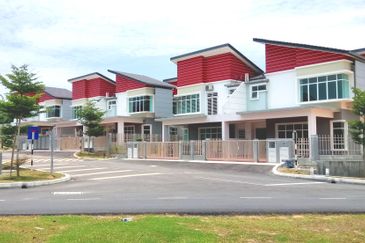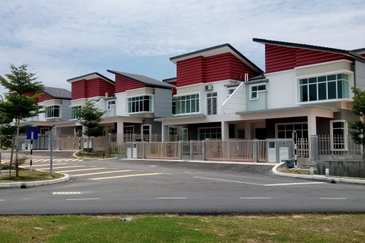
- Ahmad Maslan emphasized that the government is closely monitoring the movement of the Malaysian ringgit, as it affects the prices of imported goods.
KUALA LUMPUR (Oct 23): Raising the overnight policy rate (OPR) may no longer be "relevant” given the decline of headline inflation to below 2% recently, said Deputy Finance Minister Datuk Seri Ahmad Maslan.
Notably Malaysia's current OPR currently stands at 3%, while the headline inflation rate slowed to 1.9% year-on-year in September 2023, marking the first time inflation growth hits below 2% in almost three years when it recorded 1.7% growth in April 2021.
In contrast, Ahmad Maslan said the US federal funds rate (FFR) stands at 5.5%, yet their inflation rate remains relatively high at 3.7%. He, however, did not suggest how long the current OPR should be maintained.
"It is up to Bank Negara [Malaysia] to decide the next move regarding OPR, but our inflation rate has come down to 1.9% from the previous 2% [in August], making it no longer relevant to raise the OPR," stated Ahmad Maslan in response to a supplementary question from Bakhtiar Wan Chik (PH-Balik Pulau) during an oral question and answer session in Dewan Rakyat on Monday.
Regarding the depreciation of the ringgit, Ahmad Maslan attributed it to several factors driving its decline this year.
These include the expectation that the FFR will remain at a higher level for an extended period as the Federal Reserve seeks to control inflation.
Additionally, China's economic performance is weaker than expected, and the easing of monetary policy by the People's Bank of China has negatively impacted investor sentiment in the region.
"New concerns about possible geopolitical tensions in the Middle East have also contributed to the strengthening of the USD," he stated.
Ahmad Maslan emphasized that the government is closely monitoring the movement of the Malaysian ringgit, as it affects the prices of imported goods.
However, he pointed out that foreign currency exchange rate fluctuations are only one of several factors influencing the prices of imported goods, with other factors including supply and global commodities.
"Besides that, the government has taken holistic steps, such as implementing price controls on essential goods, to assist the public in managing the rising cost of living and ensuring the sustained availability of essential goods," he noted.
Ahmad Maslan said that the government has entrusted Bank Negara to maintain ringgit stability and address foreign exchange market volatility.
He said Bank Negara is prepared to manage risks stemming from domestic and external developments and will utilize its core operational tools to ensure an orderly market.
Looking to buy a home? Sign up for EdgeProp START and get exclusive rewards and vouchers for ANY home purchase in Malaysia (primary or subsale)!
TOP PICKS BY EDGEPROP

Mayfair Residences @ Pavilion Embassy
Keramat, Kuala Lumpur

Ixora Residences @ Bandar Seri Coalfields
Sungai Buloh, Selangor

The Banyan @ Bandar Seri Coalfields
Sungai Buloh, Selangor

The Duranta @ Bandar Seri Coalfields
Sungai Buloh, Selangor

Halya @ Daunan Worldwide
Bandar Puncak Alam, Selangor

Graham Garden @ Eco Grandeur
Bandar Puncak Alam, Selangor

Iris @ Bandar Hillpark
Bandar Puncak Alam, Selangor


















